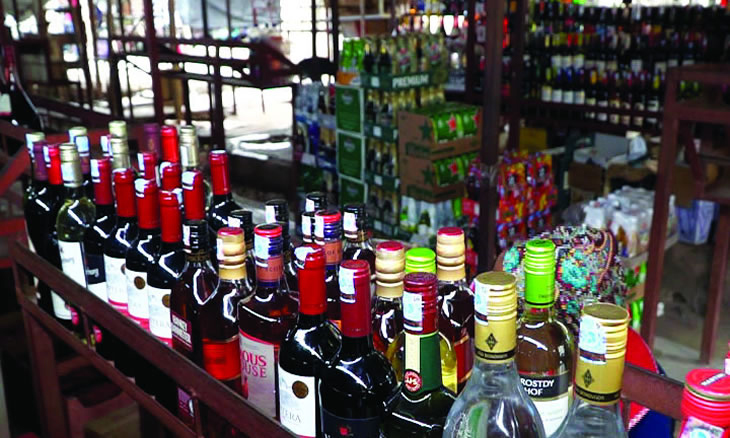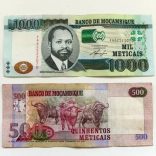Mozambique: Chapo discusses investment with World Bank
INAE proposes incineration of smuggled alcoholic beverages and their means of transport – O País

File photo: O País
Alcohol entering the country and the means of transport used for the purpose could be incinerated, if a proposal from the National Inspection of Economic Activities (INAE) to combat the smuggling of alcoholic beverages is taken up.
In 2017, the total tax loss from illicit alcohol in Mozambique reached US$344.8 million. The INAE is therefore proposing the incineration of smuggled alcoholic beverages and the vehicles involved in their transport as a way of deterring the practice.
With the exception of expired or unfit alcoholic beverages, Mozambique does not routinely destroy this category of goods. Tax proceedings are opened in the Customs Court, which may result in reversal upon payment of taxes, fees and fines, or in their sale at public auction.
It is in this sense that the INAE is proposing a revision of the law to make it more rigorous with a view to stopping the smuggling of alcoholic beverages.
“Incinerating vehicles is indeed a drastic form of discouragement. When this happens, the number of cases will reduce. Currently, we are far from solving the problem,” said Tomás Timba, Director of Operations at INAE.
Between January and May of this year, Mozambique Customs seized 108 vehicles and carried out 144 seizures of alcoholic beverages and other goods. These figures concern the CTA and raise the urgency of questions.
“Recognizing the large investments made by the industry in recent years and their contribution to the generation of direct and indirect jobs, taxes and other charges for the public treasury,” said Agostinho Vuma, chairperson of the Confederation of Economic Associations (CTA). “There is a need to rigorously combat smuggling, counterfeiting, embezzlement, fraudulent production and introduction into the market of alcoholic beverages, which constitutes unfair competition, in addition to health risks.”
For the alcohol that enters the national territory to be legal, there is a set of requirements that the importer must verify. “The label, according to the legislation, has to be in Portuguese. Inside the label, there is the alcohol content. This means that the producers, before taking the product to the market, have to follow the rules,” said Arlindo Mucone, deputy director general of INNOQ.
Combating the smuggling of alcoholic beverages ensures healthy competition in the market. “Engage the players in this industry so that they are increasingly aware of the need to operate with integrity,” Director of Cervejas de Moçambique Hugo Gomes proposed.
In addition to combating the entry of illicit alcohol into the country, consumption levels must be controlled to prevent road accidents. “We are entering the festive season,” remarked ArturTualufo, head of Traffic Police in Maputo, “and this is a moment of unrest and unruly consumption of alcohol, so we believe that this campaign is welcome because it will help us to make people aware of the need for moderate consumption of alcohol.”
The statements were made yesterday in Maputo at the launch of the campaign to prevent illicit trade and consumption, an initiative of Cervejas de Moçambique, in partnership with the Ministry of Health, the INAE, the Embassy of the United States of America, the CTA and the Association of Producers and Importers of Alcoholic Beverages.













Leave a Reply
Be the First to Comment!
You must be logged in to post a comment.
You must be logged in to post a comment.